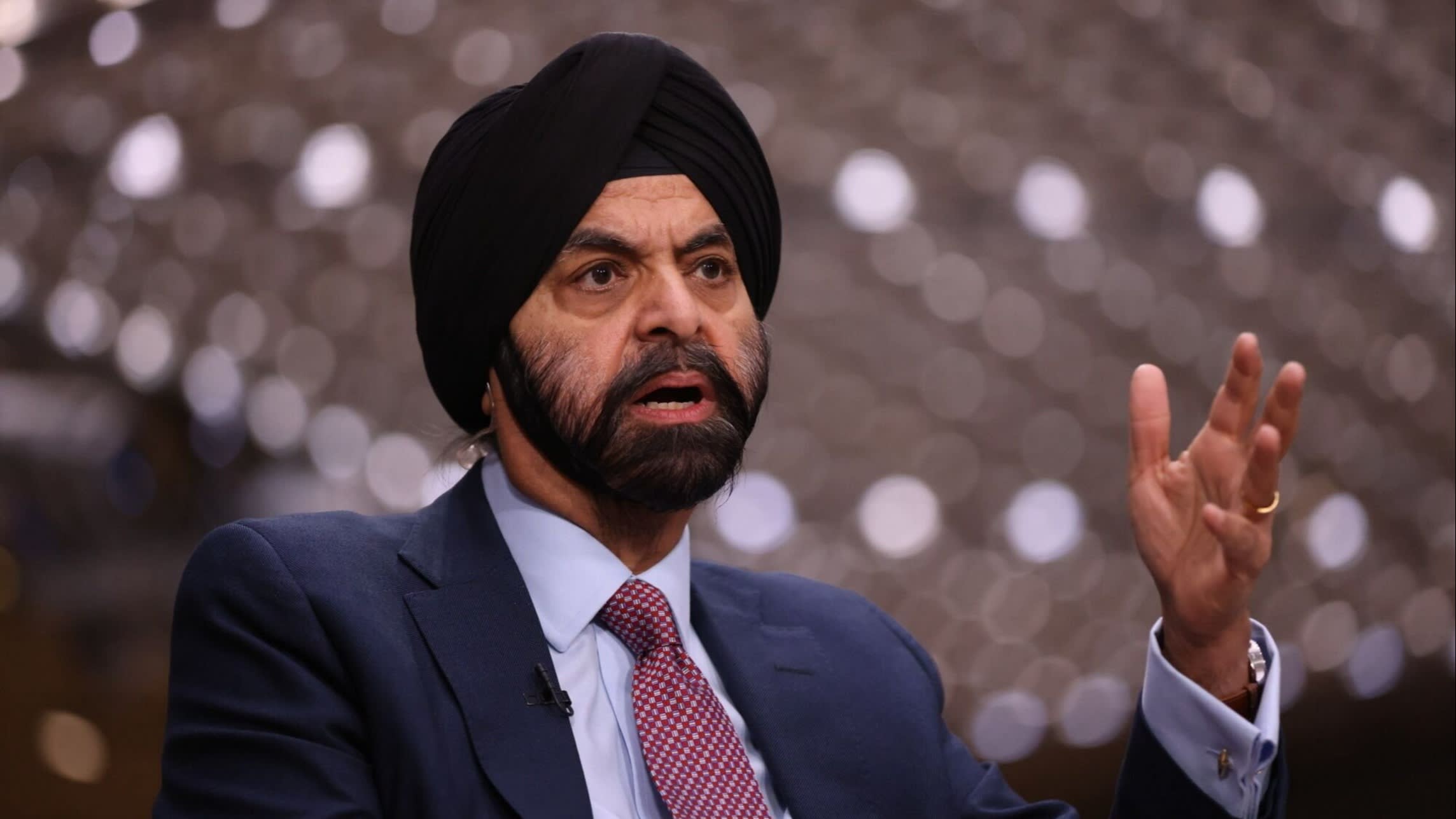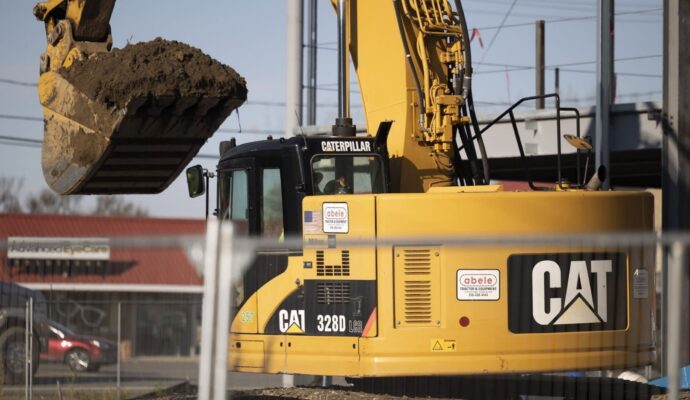
This article is an on-site version of our Swamp Notes newsletter. Sign up here to get the newsletter sent straight to your inbox every Monday and Friday
I very rarely write about the World Bank. Although its headquarters are just a 20-minute walk from where I live, the grand Bretton Woods institution has become much less central to what is happening around the world than it used to be. When I was a student in the late 80s and early 90s, phrases like “conditionalities” and “structural adjustment” — the name for the often-stringent bank loans to emerging markets — were terms of abuse among anyone vaguely on the left. I don’t think we fully grasped what we were talking about. But the sense that the World Bank and the IMF were shock troops for US global capitalism was deeply rooted.
In a fundamental sense we were right. What we failed to appreciate was how much worse those countries that did not take Bretton Woods medicine were often doing. That was the “third world”. The “second world” was the Soviet bloc, which was an economic and political disaster.
The Financial Times continued to cover the World Bank in some detail until as recently as a decade ago when our reporting on its former president Paul Wolfowitz’s conflicts of interest helped to bring about his resignation (I was DC bureau chief then and took some pride in that episode). Our coverage has dropped a lot since then.
Part of that is because we have been living through an age of very easy money in which emerging markets have had access to cheap private capital on a far larger scale than before. That lessened the importance of multilateral development banks. And partly it is because China stepped up over the past 20 years to become by far the largest official lender in the world. In many emerging markets, China’s financial outlay adds up to more than the rest of the world combined.
In a very short period of time China went from being a rounding error to the biggest creditor to what we now call the global south. Three things have recently changed. First, we’re moving back into an era of global monetary tightening. Loans are getting more expensive. Many emerging markets are defaulting. Second, China is retrenching. The Belt and Road Initiative is now as much preoccupied with politically fraught defaults — what China’s detractors call “debt diplomacy” — as it is with new projects. And third, the World Bank has its first president from the global south — Ajay Banga, who starts his job today. All of which adds up to an opportunity for the bank to try to take centre stage again.
Banga is an American citizen who was born in India — and the World Bank president’s job is still in the gift of the US. But he spent the first three-quarters of his life in Asia, mostly in his native India working his way rapidly up the corporate ladder (Nestlé, Citigroup and then more recently as chief executive of Mastercard). This gives him a very different perspective to his predecessors. The outgoing one, David Malpass, an economist and Donald Trump appointee, was not a raging success. He had trouble admitting to the threat of man-made global warming, which is problematic for an institution one of whose chief roles is to help finance the global south’s transition to clean energy.
Before that, there was Jim Yong Kim, who hired a lot of outside consultants to try to overhaul the bank’s deeply siloed internal culture — the types who charge you an arm and a leg to borrow your watch and tell you the time. That was not a success. Of the recent World Bank presidents, only Robert Zoellick had a noticeably positive impact. To be fair, the bank is a hard supertanker to turn round. Every several-hundred page loan document has to be approved by the 25-person board, which meets twice a week. Bank loans can take years to prepare.
Yet big expectations have been loaded on to Banga’s shoulders. Joe Biden’s administration wants him to leverage the bank’s balance sheet to lend more and help bridge the growing financing gap. That means taking a hit to its AAA rating. In practice, that won’t get Banga as far as the White House thinks. The stark truth is that the west wants to squeeze more juice out of the lemon rather than throw more lemons into the basket. That is short-sighted.
For every dollar of new capital the US puts into the World Bank, it would get $5 in matching capital from other shareholders. That would then be leveraged another six times in new lending. Is there any other return on US public dollars that gets $30 in lending for $1 in capital? Nothing comes close. In the absence of Congress agreeing to new infusions, Banga will have to find more innovative ways of channelling money, such as working with private lenders.
He has a huge role at a critical inflection point in the global development story. Many of the global south’s millennium development successes have been reversed because of the pandemic and Russia’s full-scale invasion of Ukraine. This is a slow-burning crisis. A growing share of the west’s largesse is directed at Ukraine. That will be even more true in the years ahead as Ukrainian reconstruction becomes a priority. If we want to win hearts and minds in the global south, and reduce China’s grip over its client list, we will have to do far better than this. Banga should be given everything he needs to do this job.
Rana, I resisted saying that we need “more Banga for our buck” because we don’t like to get too silly with our headlines at the FT. But it captures the enormous financing challenge facing the global south. Do you have good ideas for Banga?
Recommended reading
My column this week awards “game, set and almost match” to Biden in the debt ceiling battle with Kevin McCarthy’s Republicans. Of course, the deal could still come unstuck over the weekend. As it stands, however, it is about the least bad outcome imaginable.
Do take the time to read Evan Osnos’s latest essay on the world of the super-rich in the New Yorker. His last one was about superyachts (“The Haves and the Have-Yachts”). This one is about the eye-popping fees that former and current pop stars are getting paid to perform at private parties — from bar mitzvahs in Chicago to Sheikhs’ birthday parties in the Gulf.
Finally, I was late to The Ministry for the Future: A Novel, by Kim Stanley Robinson, in much the same way that humanity is late in waking up to climate change. Although modestly futuristic, Robinson’s is the first book on global warming that grabbed me by the throat and kept me interested. It’s very realistic. This scifi writer has done his research.
Rana Foroohar responds
Ed, my advice for Banga would be to immediately call the White House and cook up a plan for how to get poorer countries looped into the fiscal stimulus related to climate change. The Biden administration knows that it needs to find a way to connect with the global south more effectively than it has done so far. Friend-shoring can only take us so far; in order to make the climate transition, the US is going to have to find ways to trade with emerging markets that have some of the crucial commodities needed for things such as green batteries and so on.
The World Bank could conceivably be a conduit to all of this. It could help facilitate the development of new growth metrics around sustainability and inclusivity, and then help facilitate some of the investment and trade deals that would bring poor countries in alignment with higher environmental and labour standards in exchange for more capital. Even though interest rates are tightening as you point out, there’s still a lot of money sloshing around the world. It’s not so much capital that is needed as the right kind of capital pushing the right kind of policies.
This would of course expand the World Bank’s mandate and in some ways blur the lines between it and the World Trade Organization. But as you know I think it’s time for full-blown reform of the Bretton Woods institutions. This could be a good way to start.
Your feedback
And now a word from our Swampians . . .
In response to “Kissinger was right about this”:
“Détente was a matter of global survival, and that contribution cannot be taken away from [Kissinger], just because he was male, old (now), white, and amoral (bordering on immoral). With Kissinger Associates, I am not sure it was pecuniary gain that motivated him in later years. He needed to preserve access to China’s leadership, and soft-pedaled Tiananmen Square in his writings. There is a lot of writing by China experts who are dependent on access to at least the country of China to remain China experts. This causes a softening of criticism of a regime that knows how to strike back.” — Alan Wolff
Your feedback
We’d love to hear from you. You can email the team on swampnotes@ft.com, contact Ed on edward.luce@ft.com and Rana on rana.foroohar@ft.com, and follow them on Twitter at @RanaForoohar and @EdwardGLuce. We may feature an excerpt of your response in the next newsletter


